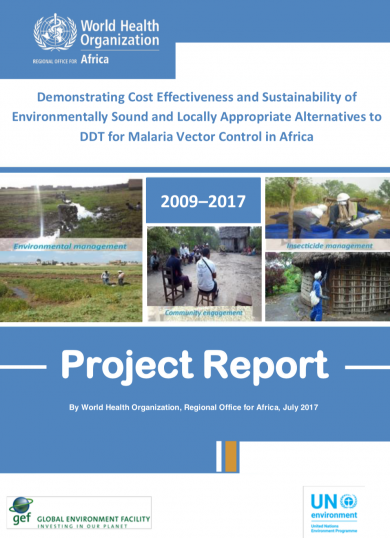
Demonstrating Cost Effectiveness and Sustainability of Environmentally Sound and Locally Appropriate Alternatives to DDT for Malaria Vector Control in Africa
DDT is currently used in indoor residual spraying (IRS) for malaria vector control in several countries, in accordance with the recommendations and guidelines of the World Health Organization (WHO). Nonetheless, this chemical is among the 12 persistent organic pollutants (POPs) the production or use of which is restricted by the Stockholm Convention because of the high risk it poses to environmental and human health. To reduce reliance by countries on DDT, integrated vector management (IVM) is being promoted thanks to its cost- effectiveness, ecological soundness, and sustainability. IVM creates the opportunity to implement a combination of chemical and non- chemical methods. A number of non-chemical methods have proven their value in malaria vector control in certain settings, but more work is needed on the incremental impact of these methods when used in conjunction with backbone interventions such as indoor residual spraying (IRS), long-lasting insecticidal nets (LLINs) or case management with artemisinin-based combination therapies (ACTs) for treatment of uncomplicated malaria.


